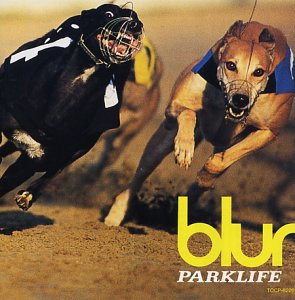
- Format: MP3

Modern Life Is Rubbish established Blur as the heir to the archly British pop of the Kinks, the Small Faces, and the Jam, but its follow-up, Parklife, revealed the depth of that transformation. Relying more heavily on Ray Davies' seriocomic social commentary, as well as new wave, Parklife runs through the entire history of post-British Invasion Britpop in the course of 16 songs, touching on psychedelia, synth pop, disco, punk, and music hall along the way. Damon Albarn intended these songs to form a sketch of British life in the mid-'90s, and it's startling how close he came to his goal; not only did the bouncy, disco-fied "Girls & Boys" and singalong chant "Parklife" become anthems in the U.K., but they inaugurated a new era of Britpop and lad culture, where British youth celebrated their country and traditions. The legions of jangly, melodic bands that followed in the wake of Parklife revealed how much more complex Blur's vision was. Not only was their music precisely detailed — sound effects and brilliant guitar lines pop up all over the record — but the melodies elegantly interweaved with the chords, as in the graceful, heartbreaking "Badhead." Surprisingly, Albarn, for all of his cold, dispassionate wit, demonstrates compassion that gives these songs three dimensions, as on the pathos-laden "End of a Century," the melancholy Walker Brothers tribute "To the End," and the swirling, epic closer, "This Is a Low." For all of its celebration of tradition, Parklife is a thoroughly modern record in that it bends genres and is self-referential (the mod anthem of the title track is voiced by none other than Phil Daniels, the star of Quadrophenia). And, by tying the past and the present together, Blur articulated the mid-'90s zeitgeist and produced an epoch-defining record.